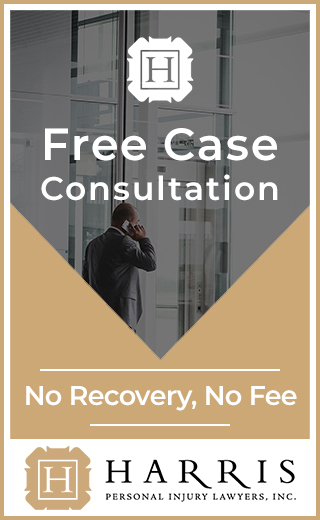Azusa Bus Accident Attorneys
Azusa Bus Accident Attorneys
There are more than 200 major bus wrecks in California every year, according to the Federal Motor Carrier Safety Administration. Victims can sustain catastrophic injuries often resulting in long-term health complications. If you were seriously injured in one of these wrecks, our Azusa bus accident attorneys have the experience, resources, and knowledge to assist with all aspects of your case. With decades of collective experience overseeing accident claims, we know what it takes to prevail at every stage of proceedings. Call us today at 1-800-GO-HARRIS to find out more about our legal services.
What Should I Bring to My Consultation with a Bus Wreck Attorney?
If you’ve scheduled a consultation with an attorney, it’s likely this is the first time seeking legal counsel. You may be wondering how to prepare for this meeting. While you can walk into our law firm empty-handed and leave feeling more informed than when you first arrived, it may benefit your claim to come prepared. Here are a few items you might want to bring to the initial consultation:
- Eyewitness Statements and Contact Details: Did you speak to any other passengers or someone who witnessed the collision? Did you take down their statements? It’s possible that their deposition or testimony could help corroborate your version of events. As such, you should share their contact details with your attorney during the initial consultation.
- The Official Police Accident Report: If you or anyone else reported the accident to authorities, it’s likely that officers came to direct traffic and investigate the collision. This document can include details about the parties involved, injuries suffered, property damage, and the officers’ observations on what may have caused the crash. Not only will the claims adjuster want to see the official accident report before approving your claim, but your attorney can also use this document to identify evidence that might help you prove liability, causation, and damages.
- Receipts, Invoices, and Estimates: In a bus wreck claim, you will only be able to obtain compensation for the expenses that you are able to prove. As such, you should track your damages carefully, making sure to compile any receipts, bills, and invoices related to your post-accident expenses. Bring these financial documents to the initial consultation.
- Photos of Your Injuries Taken at the Accident Scene: Taking pictures of your injuries immediately after the collision can help you tie your condition to the bus wreck. It’s possible that opposing parties may dispute whether your injuries were caused by the accident, and your attorney may use these images—in combination with other evidence—to counter such defenses.
What Should I Do after a Bus Wreck?
Suffering a serious injury can have a ripple effect across every aspect of your life; disrupting your normal routines, sidelining you from work, and making it impossible to live independently. During these dark days, it can be challenging to stay calm and focused on the hard work of healing. However, if you’ve filed or are planning to file a personal injury claim, you need to consider every action carefully. One false move and you could sink your chances of achieving a successful outcome, depriving you and your loved ones of the funds you need to move on with your lives. Let’s take a look at some of the steps claimants should take after an accident:
- Visit the Doctor Immediately: The signs of a serious injury are not always that easy to notice—at least initially. For example, you may dismiss that pounding headache as a symptom of dehydration or chalk up bouts of nausea to the trauma of the accident. However, these are both common symptoms of a traumatic brain injury. Left unchecked, concussions can be fatal or lead to serious health complications that could affect your cognitive and physical functions. As such, you should always visit the doctor for a comprehensive medical assessment after an accident. A prompt diagnosis can rule out—or catch—any life-threatening conditions and set you on the path to recovery. It can also help you avoid disputes over liability, causation, and damages.
- Stay Off Social Media: Anxious, confused, and in considerable pain, many bus wreck victims turn to friends and family for support and guidance in the wake of an accident. While a conversation over coffee can help you decompress after this traumatic event, taking these discussions online could tank your chances of recovering a fair settlement. It’s possible that the insurer and other opposing parties are monitoring your social media profiles for any posts that could be used as evidence to challenge your case. As such, we might advise you to disable your accounts until your case has concluded. However, if this isn’t possible in your situation, you should set your profiles to “private” and avoid posting altogether.
- Compile Any Evidence You’ve Gathered: Building a convincing claim starts with collecting strong evidence. If you were able to gather any evidence at the scene or in the days following the accident, you should share these items with your lawyer. For example, you may have taken pictures of your injuries at the accident scene, spoken to eyewitnesses, obtained copies of your medical records, or tracked down surveillance camera footage of the incident itself. Your attorney will want to see this evidence to determine whether it could help corroborate your version of events.
Speak to an Azusa Bus Accident Attorney Today
Our legal team is available to take your calls—during office hours, after hours, and on weekends. Reach out to us via our 24/7 contact line at 1-800-GO-HARRIS or switch over to our Online Contact Form to book a free case review.

